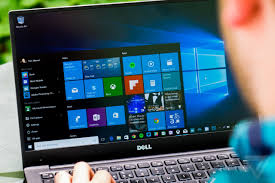We are living increasingly digital lives: we’re storing more of our personal data, and the things that matter the most to us, on our computers. While this revolution started a few years ago when many of us were chained to our desks by immovable desktop PC, more people than ever are using mobile computing devices such as laptops, smartphones and tablets. This has made our data has become more vulnerable, so it’s important that we protect it by making regular back-ups: but what are your options when it comes to securing your data?
In the past the only option available when it came to backing up data was to use an external hard drive (EXHDD) and this is still the most secure, reliable way to keep your data safe. These drives can back-up every bit of data you have, but they do have drawbacks: the data on them can only ever be accessed when the drive is plugged in to your computer (and, usually, the mains). They’re also hefty things with very delicate inner-works that can’t take much of a beating, so not particularly portable for mobile life.
If you only have a small amount of data to back-up, flash drives (otherwise known as USB sticks or pens) are ideal. Far from being just for transporting documents from one computer to another, flash drives can now carry up to 500gb which is bigger than many laptop hard drives. Most are still sized in the 2-16gb range and this is the ideal size for backing up data from smartphones, or small desktop files. However, their size also makes them much easier to lose and destroy than an EXHDD and a relative storage-sized flash drive is normally more expensive than the EXHDD equivalent.
The latest thing in data backup is cloud storage: services such as DropBox, Google Drive and iCloud offer storage without you having to buy any peripheral equipment and, as it’s stored on a server accessible through the internet, this data will be accessible to you no matter where you are in the world. The drawback here is obvious: if that data is accessible to you that easily, it might be accessible to hackers and other shady dealers. You’re also likely to have to pay a premium for anything beyond a basic service, so most are better sticking with an EXHDD and using cloud storage purely to transfer files or work on collaborative projects.

This is Rohan, I’m a Digital marketing Expert, Full time Content Writer and founder of BoxerTechnology.com I can help people across the world through my articles. I am sharing the latest stories from companies like Apple, Samsung, Google, and Amazon.






Leave a Reply